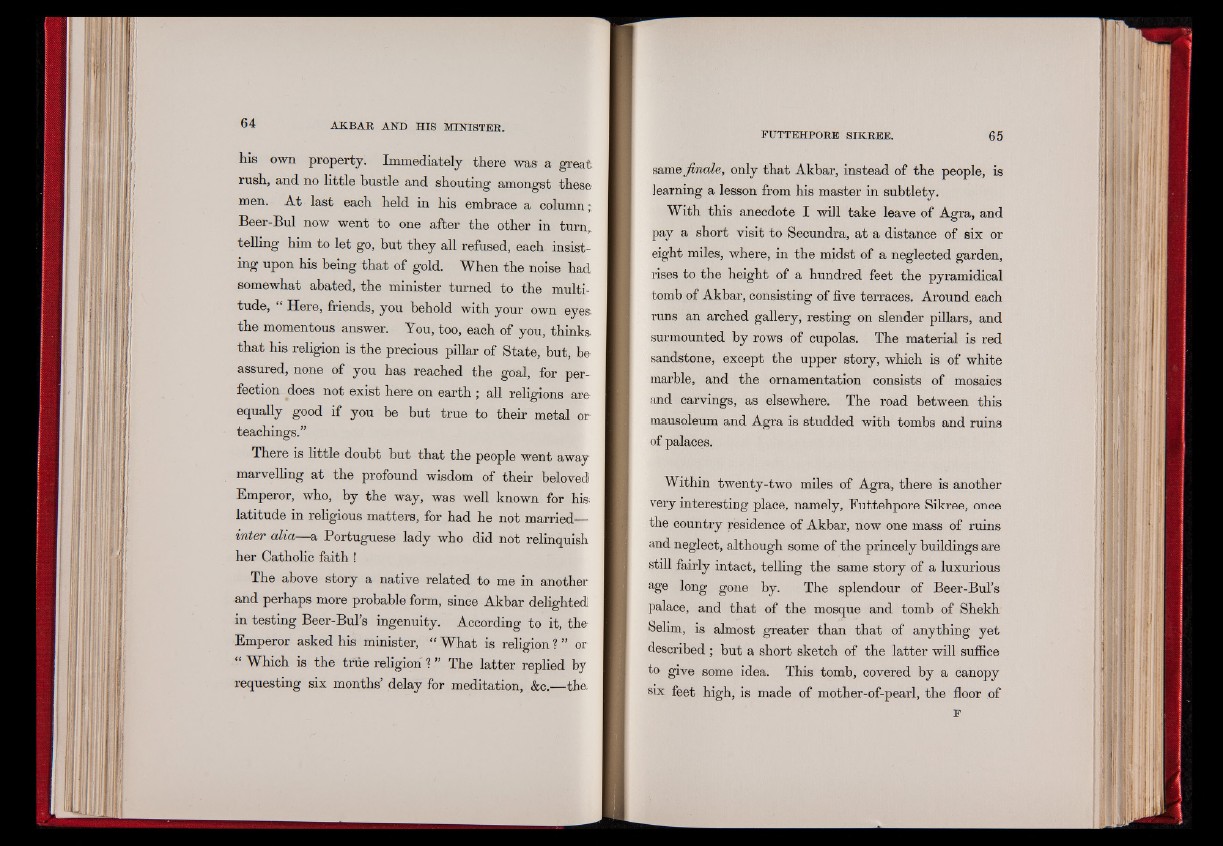
64 AK.BAR, AND HIS MINISTEB.
his own property. Immediately there was a great
rush, and no little bustle and shouting amongst these
men. At last each held in his embrace a column;,
Beer-Bul now went to one after the other in turn,,
telling him to let go, but they all refused, each insisting
upon his being that of gold. When the noise had
somewhat abated, the minister turned to the multitude,
“ Here, friends, you behold with your own eyes
the momentous answer. You, too, each of you, thinks
th a t his religion is the precious pillar of State, but, be
assured, none of you has reached the goal, for perfection
does not exist here on earth ; all religions are
equally good if you be but true to their metal or
teachings.”
There is little doubt but that the people went away
marvelling at the profound wisdom of their belovedi
Emperor, who, by the way, was well known for his:
latitude in religious matters, for had he not married—
inter alia a Portuguese lady who did not relinquish
her Catholic faith !
The above story a native related to me in another
and perhaps more probable form, since Akbar delighted!
in testing Beer-Bui’s ingenuity. According to it, the-
Emperor asked his minister, “ What is religion ? ” or
“ Which is the true religion ? ” The latter replied by
requesting six months’ delay for meditation, &c.—the
FUTTEHPORE SIKREE. 65
samejinale, only that Akbar, instead of the people, is
learning a lesson from his master in subtlety.
With this anecdote I will take leave of Agra, and
pay a short visit to Secundra, at a distance of six or
eight miles, where, in the midst of a neglected garden,
rises to the height of a hundred feet the pyramidical
tomb of Akbar, consisting of five terraces. Around each
runs an arched gallery, resting on slender pillars, and
surmounted by rows of cupolas. The material is red
sandstone, except the upper story, which is of white
marble, and the ornamentation consists of mosaics
and carvings, as elsewhere. The road between this
mausoleum and Agra is studded with tombs and ruins
of palaces.
Within twenty-two miles of Agra, there is another
very interesting place, namely, Futtehpore Sikree, once
the country residence of Akbar, now one mass of ruins
and neglect, although some of the princely buildings are
still fairly intact, telling the same story of a luxurious
age long gone by. The splendour of Beer-Bul’s
palace, and that of the mosque and tomb of Shekh
Selim, is almost greater than that of anything yet
described ; but a short sketch of the latter will suffice
to give some idea. This tomb, covered by a canopy
six feet high, is made of mother-of-pearl, the floor of
F